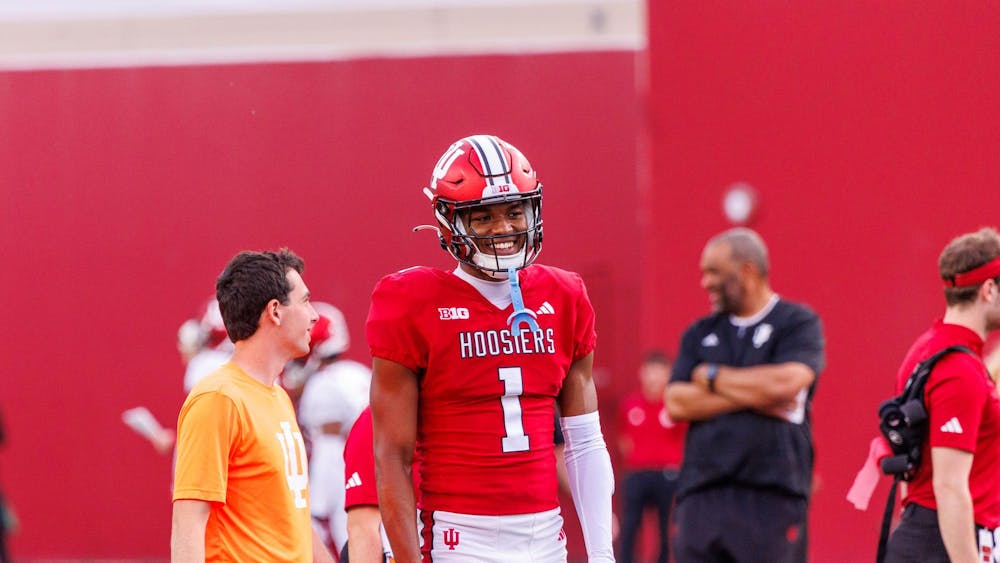On the first day of February, Bloomington’s Planned Parenthood office received a new next-door neighbor.
Just one building away from the Planned Parenthood is a Women’s Care Center, the newest facility available to pregnant women who seek resources to accommodate their pregnancies.
Ali Slocum, communications and marketing director for Planned Parenthood of Indiana and Kentucky, said the close proximity of the two clinics is no coincidence.
“We routinely experience these types of centers being built next to our health center,” Slocum said.
Even down to the messaging and branding, these clinics may look similar to a Planned Parenthood, but the clinics are different in their approach to pregnancy and the options they offer for women.
Planned Parenthood offers a variety of services and products, such as abortion, birth control, the morning-after pill, STD testing and education on women’s health in general, according to its website.
“Contraception is the number one service that we provide, overwhelmingly,” Slocum said.
Women’s Care Center offers similar pregnancy services with an emphasis on determining whether women are pregnant in the first place. Planned Parenthood more so focuses on the options women have once their pregnancy is confirmed.
The Women’s Care Center website identifies free pregnancy tests and free ultrasounds as some of the main options women have at the clinic, and while its website does feature an abortion webpage for women to research, the clinic doesn’t perform the procedures.
Instead, the center verifies a pregnancy first and then decides between a number of options women have available to them on how to proceed.
According to the Women’s Care Center website statistics, up to 40 percent of pregnancies result in a natural miscarriage.
However, the Centers for Disease Control reports that rates of miscarriage are much lower than this and steadily decreasing. In 2010, the rate of miscarriage was 17 percent according to the CDC.
Slocum said even with the creation of a new center next door, the Bloomington Planned Parenthood will continue to give the same care and level of service it always has. Slocum said Planned Parenthood patients and supporters can note the difference between the two facilities after going to Women’s Care Center first.
“Then they came to us at Planned Parenthood and said they appreciated hearing unbiased, accurate advice,” Slocum said.
Slocum said, although they don’t ask patients to self-identify, the main age group Planned Parenthood sees in Bloomington is young adults.
“In the Bloomington health center, the overwhelming majority of patients we see are 20-24 years old,” Slocum said. “The next group is 25-29 years old. The difference between age groups percentage-wise is 105 percent.”
However, Women’s Care Center isn’t the only entity that rejects Planned Parenthood and its abortion services in particular.
At IU, Advocates for Life is a law school club that promotes a pro-life stance.
Robert Rowlett, president of AFL, a graduate student and second-year law student, said the group is not religious-based but centers more around education and information. The group has featured a number of different experts in fields such as bio-ethics, stem cell research, gene therapy techniques and medical procedures like physician-assisted suicide and abortion. The group’s focus is on all life in general not just that of fetuses.
“Pro-life, we embrace that broadly,” Rowlett said. “In my own words, our goal is advocacy.”
Rowlett said oftentimes the media and the courts disperse information, but it’s often unclear what is scientifically accurate. AFL presentations have worked to debunk rumors about abortion and the effects it can have for women after the fact.
Patricia Casey from the University College Dublin Library conducted research about abortion and young women and the outcomes abortion can have on young women. Casey found women who opt for abortions can encounter a greater chance of psychiatric disorders, including post-traumatic stress disorder, substance misuse, depression and anxiety, among others, after the procedure.
“Obviously AFL is pro-life, so we’re not in support of abortion, but that’s not to say we don’t recognize why certain women seek to get an abortion,” Rowlett said.
AFL, despite its understanding of certain women’s decision to have this procedure, still encourages other choices other than Planned Parenthood. On March 30, AFL will have its next event, including a display on campus titled “Why We Don’t Need Planned Parenthood.”
“We think there are better alternatives than Planned Parenthood,” Rowlett said.
Despite negative press and the controversial political events and discussions that have taken place recently, Slocum said Planned Parenthood isn’t deterred from providing its routine services and support.
“We don’t counter-protest,” Slocum said. “But what’s so great about this political climate is that our supporters have risen up and counter protested.”
Slocum said no other organization in the state does more to prevent unintended pregnancies than Planned Parenthood does and emphasized what an asset it can be for women.
“We stand up for all people, and when people have access to health care, it has the power to change lives,” Slocum said.






